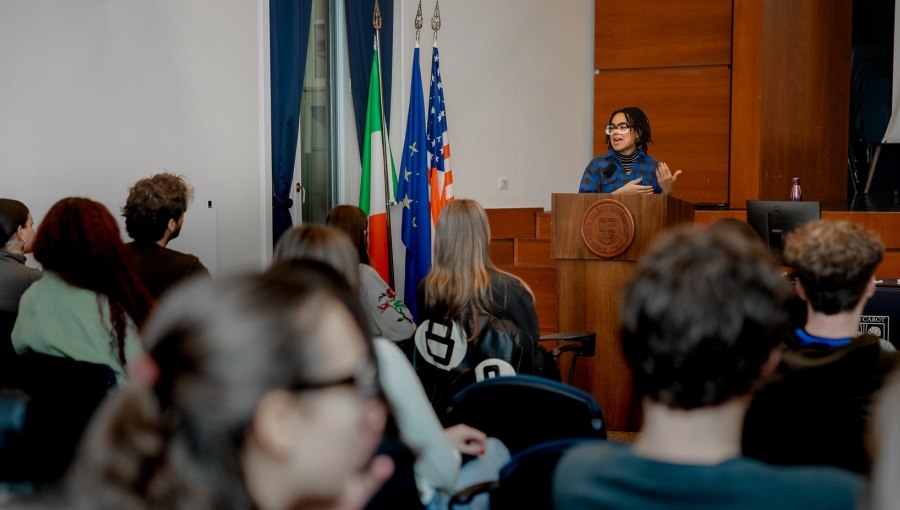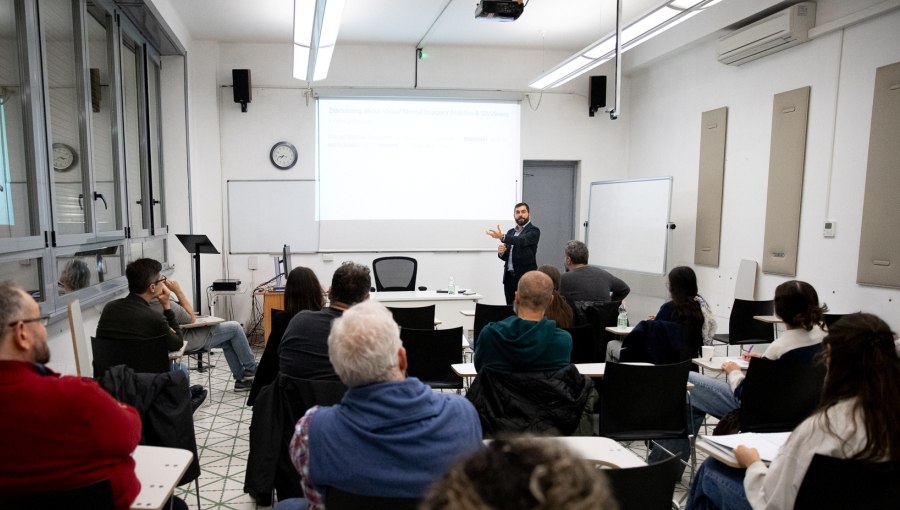Digital Contagions: JCU Welcomes New Media Theorist Jussi Parikka
On April 22, the JCU Department of Communications hosted “Digital Contagions: from Network Security to Viral Capitalism,” the last lecture of the Digital Delights and Disturbances Series. Guest Jussi Parikka held a presentation on the emergence of viruses intended as both software-based risks and carriers of infectious diseases. Jussi Parikka is a Finnish new media theorist and Professor in Technological Culture & Aesthetics at Winchester School of Art. He is also Visiting Professor at FAMU in Prague. Among his most known works are A Geology of Media (Minnesota Press, 2015) and Digital Contagions: A Media Archaeology of Computer Viruses (Peter Lang Publishing, 2007).

Jussi Parikka
Parikka’s presentation was divided into three sections, titled “General Accident,” “Viral Capitalism” and “Vulnerable Bodies.” Drawing from his book “Digital Contagions: A Media Archaeology of Computer Viruses,” in the first section Parikka talked about the history of media as a “succession of accidents.” Viruses are not simply seen from the perspective of anti-virus research and security problems, but also come to play a significant role in the study of geopolitics.
In the second section of his presentation, Parikka discussed viral capitalism. On his blog, “Machinology,” he describes viral capitalism as a “sticky, viral-like mode of spreading – not however just objects that are contagious, but environments, or milieus in which infection becomes possible.” Capitalism takes advantage of dangers and risks, of the “accidents” that define media culture, following an “if it’s not broken, break it” logic. In order to explain this concept, Parikka quoted “The Gospel of Germs: Men, Women, and the Microbe in American Life” (1998), by Nancy Tomes. In the book, Tomes argues that capitalism has always taken advantage of people’s fear of catching diseases, by coming up with products designed to calm people’s anxieties – just think of the way hand sanitizers sold out during the Covid-19 pandemic. The same happens in the media realm, where the selling of anti-virus software is quite prolific.
The third section of the presentation was titled “Vulnerable Bodies.” Our bodies host a number of viruses and bacteria. “Viruses represent the ‘stranger,’ the ‘other.’ They are synonymous with uncontrollable diversity,” said Parikka. When it comes to the representation of viruses, they are either seen as “spikey blobs,” or they are described through diagrams and statistic curves. Parikka finds the latter representation more fascinating, as it conveys a sense of authority and operationality.
Earth Day
Since April 22 was Earth Day, Communications Professor Antonio Lopez asked Parikka about his book “A Geology of Media,” where the Earth’s history, geological formations, minerals, and energy are used to understand contemporary media culture. Professor Lopez asked Parikka if he thought data mining and the extraction of minerals and oil had anything in common. Parikka explained that, in both cases, something – be it data or raw materials, is being extracted from a source. However, the point with data mining is not the extraction of information per se, but its constant production and commodification.





